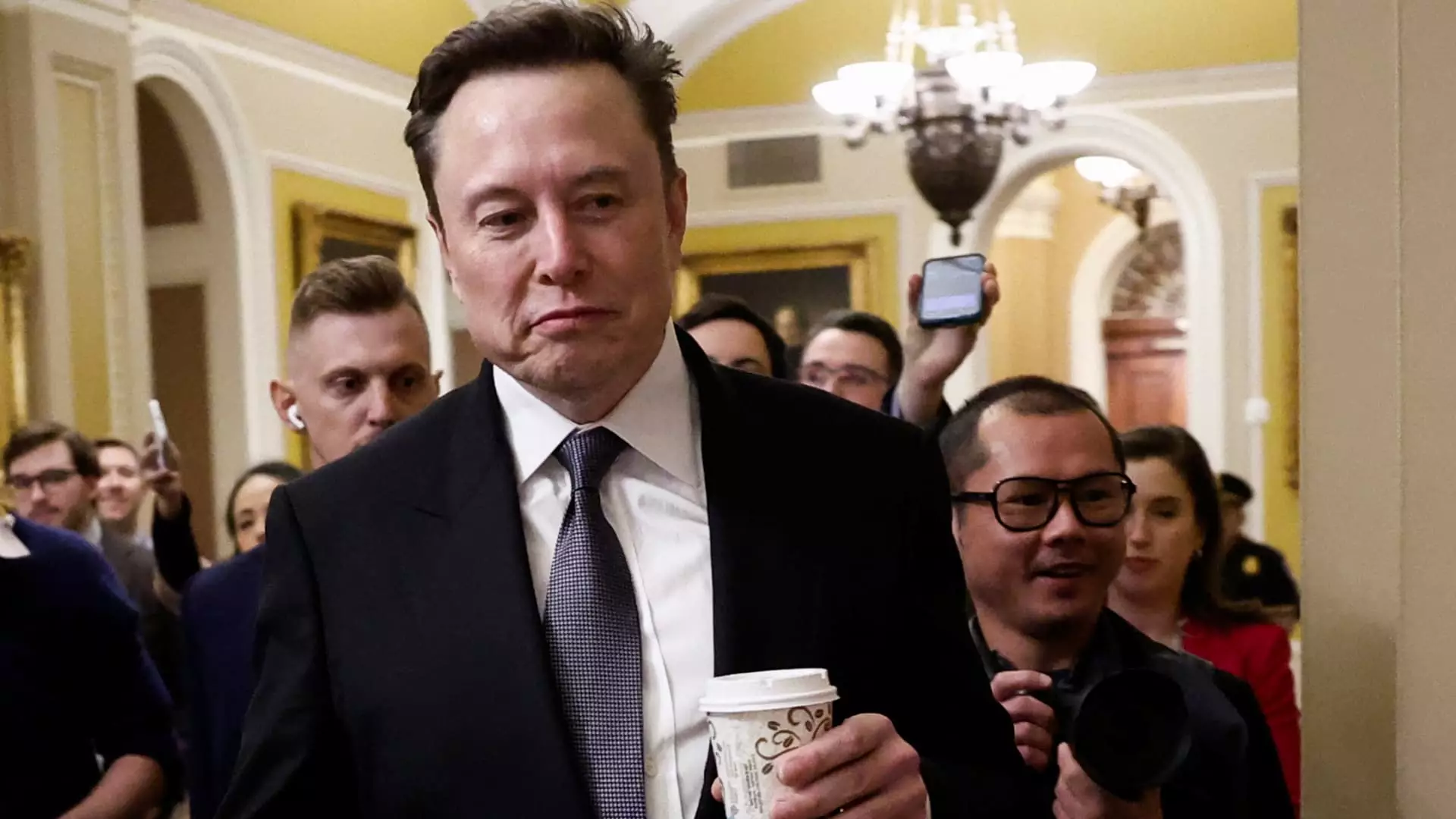Easterly Government Properties, a real estate investment trust (REIT) focused primarily on government-leased properties, finds itself under significant scrutiny in the wake of recent political developments in the United States. Following the U.S. presidential election, the company’s stock has experienced a troubling decline of approximately 12%, a reflection of investor trepidation regarding the potential ramifications of a newly formed advisory council dedicated to reducing federal expenditures. Trading under the stock symbol DEA, Easterly’s revenue—predominantly generated from government leases—could face unprecedented challenges if the proposed budget cuts materialize.
The advisory council, popularly referred to as DOGE, is co-led by prominent figures like Elon Musk and Vivek Ramaswamy, who have set ambitious targets to curb federal spending by as much as $500 billion. Investors are concerned that Easterly’s business model—which relies heavily on its 100 government leases—is positioned precariously within a landscape that may see significant fiscal tightening. CEO Darrell Crate has expressed his belief that the company’s properties, which include critical infrastructures such as Veterans Affairs medical facilities, FBI offices, and courthouses, are essential to national security and should remain unaffected by budgetary reductions.
Despite Crate’s assertions of the importance of Easterly’s portfolio, market analysts have exhibited skepticism regarding the long-term viability of the stock. John Kim from BMO Capital Markets highlighted that while the company’s mission-critical leases lend some security, certain segments of their portfolio could be vulnerable to funding cuts. This duality of potential resilience and vulnerability reflects an unpredictable investment territory. For example, while it may be unlikely for FBI offices to be shuttered, the broader implications of government budget prioritization could adversely affect the operational landscape of Easterly’s diverse property holdings.
Kim’s commentary particularly emphasizes concerns over the company’s high dividend payout, currently set at 27 cents per share, equating to an enticing yield of 9%. Yet, this dividend strategy has led to calls from analysts for a recalibration of shareholder returns, aligning payouts more closely with the evolving financial realities of the organization. The inability to cut the dividend could, in fact, create more turbulence for the stock, which remains in a state of flux as investors navigate through uncertain economic waters.
Amidst the backdrop of DOGE’s initiatives and the specter of government downsizing, the management of Easterly recognizes the urgent need for clearer communication regarding its mission and relevance. Crate acknowledged the fundamental role of his company in providing necessary governmental services, thus positioning Easterly as a potential ally in the fight against governmental inefficiencies. This proactive stance aims not only to assure investors of the company’s ethics but also to affirm its integral role within the federal framework.
Furthermore, Easterly’s leadership seems mindful of the imperative to establish partnerships with entities such as DOGE. By engaging with the initiative’s objectives, the company seeks to align itself with governmental priorities and present its properties as solutions rather than liabilities. The support from influential figures within the Trump administration, bolstered by Crate’s familial connections to Trump’s campaign, could enhance collaboration between the company and policy-makers during these tumultuous times.
As the situation unfolds and the deliberations regarding budget cuts progress, the trajectory for Easterly Government Properties will largely hinge on its ability to navigate the complex dynamics of federal budgetary politics while reassuring investors of its underlying stability. The acknowledgment of government waste and willingness to engage in discussions about reform presents an opportunity for the company to solidify its position as an essential component of government functionality. Ultimately, Easterly must adapt its strategies, foster transparent communications, and align itself with broader governmental efficiency goals to safeguard its market value and sustain investor confidence in the turbulent landscape ahead. As the stock continues its fluctuations, stakeholders will be looking for signs of resilience and strategic foresight from the management, particularly in light of the historic challenges presented by an evolving federal budgetary environment.

